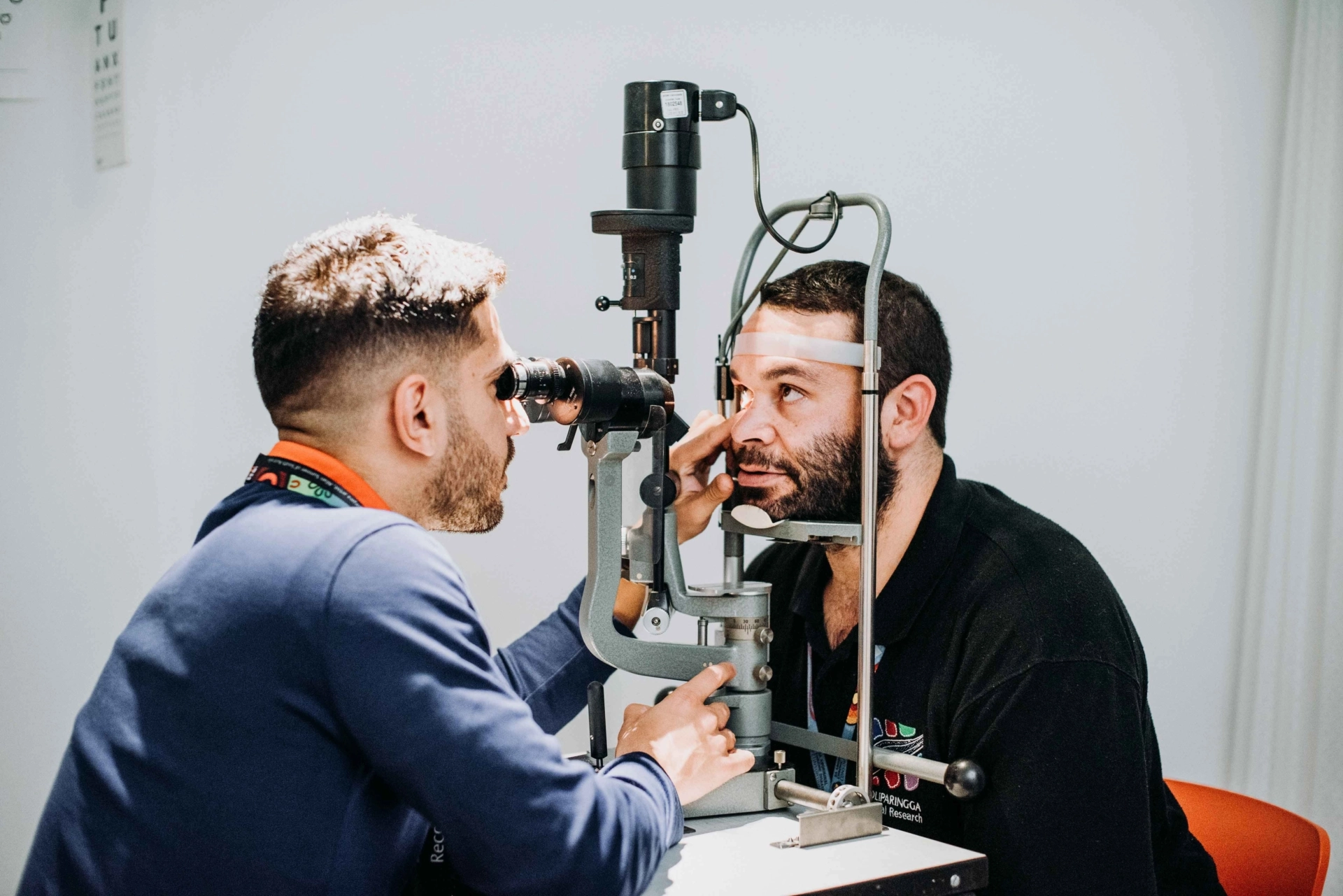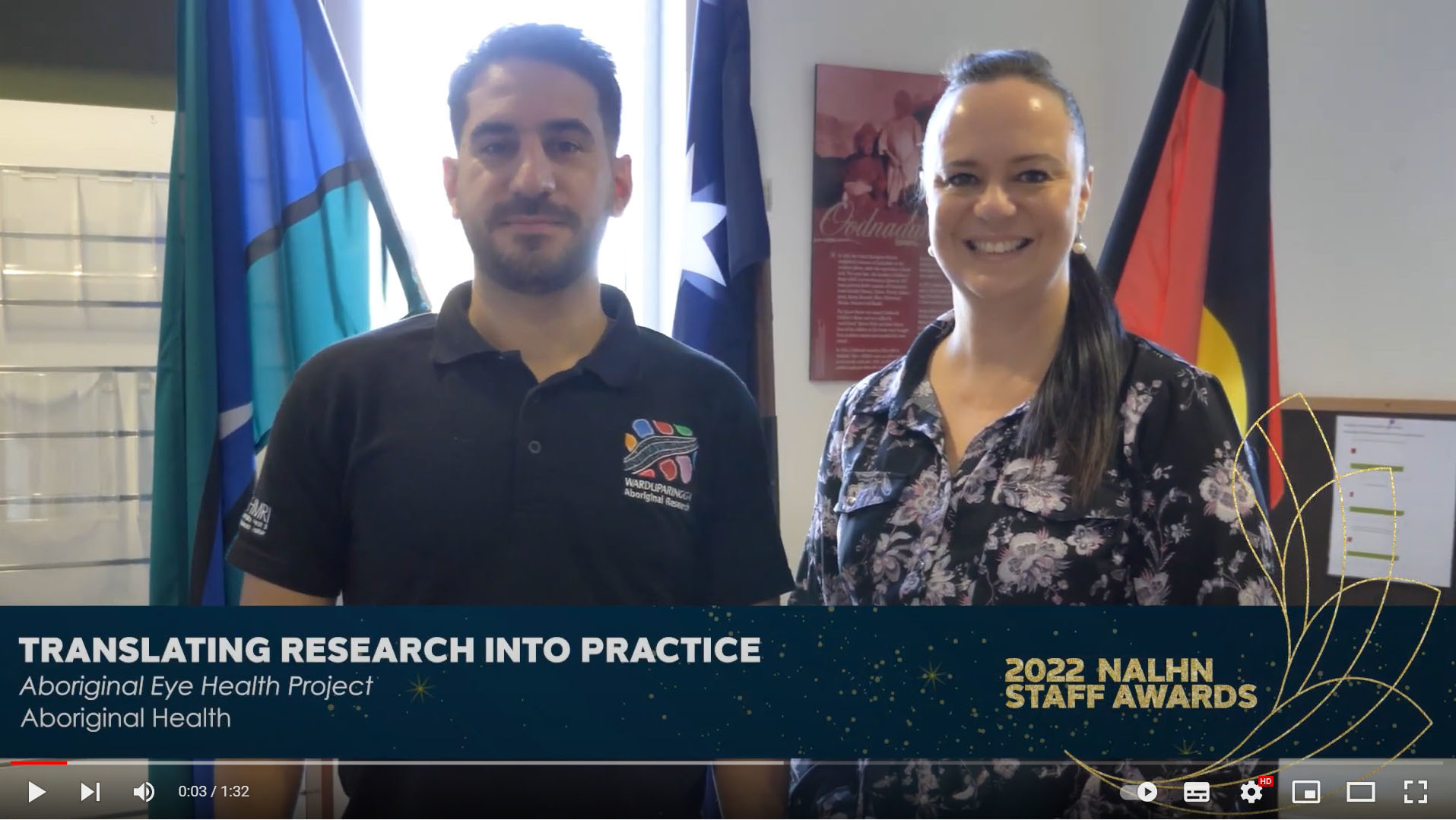Increasing prevalence of type 2 diabetes (T2D) and rapid progression of diabetes-related complications has resulted in diabetic retinopathy (DR) becoming a leading cause of blindness among Aboriginal Australians.
Premature onset of DR and aggressive disease phenotypes have been demonstrated, yet there is still much to be understood on the determinants contributing to diabetes-related blindness, including the role of social, clinical and biological risk factors.
Low screening and treatment coverage rates and fragile pathways to treatment are shaped by unmet social, cultural and clinical needs of Aboriginal Australians across the continuum of eye health care. Consequently, DR blindness is approximately three times that of other Australians despite DR being preventable with early detection and timely treatment.
Building on a comprehensive Aboriginal health research platform, we will co-design, implement and evaluate a model of eye health care that considers the specific needs of Aboriginal people and communities.
Through co-design in urban, regional and remote Aboriginal South Australian communities and service settings, our program aims to:
- Understand the underlying social, clinical and biological risk factors of DR,
- Identify eye health care needs, and
- Implement and evaluate strategies to increase DR screening rates and treatment coverage.
Incorporating inter-disciplinary approaches, this innovative program of work brings together a consortium capable of addressing Aboriginal eye health inequities, to strengthen service and system capabilities and facilitate positive Aboriginal-led eye health outcomes.
Uniquely, this research consortium is primed to deliver impact through:
- Partnership with Aboriginal people, communities and organisations,
- Comprehensive characterisation of DR risk,
- Identification of high-risk sub-populations, and
- Implementation of a culturally appropriate model of care embedding advanced imaging and personalised screening.
Translating Research into Practice - 2022 NALHN Staff Award Winner
This project aims to increase screening rates and treatment coverage of diabetic retinopathy in Aboriginal and Torres Strait Islander peoples by co-designing and implementing eye healthcare strategies specific to their needs.
Co-designed and led by the Aboriginal Primary Healthcare service, the underlying social and clinical risk factors of diabetes blindness were understood, community level eye healthcare needs and gaps identified, and an eye healthcare plan was produced.
The Aboriginal Eye Health Project is an excellent example of translating research into best practice and sustainable health care to meet the needs of our local community. This has now been demonstrated by the Translating Research into Practice category winner at the 2022 NALHN Staff Awards.
'New research preventing blindness in Indigenous communities'
Early detection, increased screening and improved treatment options that combat diabetic retinopathy (DR), a leading cause of blindness in South Australian Aboriginal communities, is the aim of a new $1.4 million Medical Research Future Fund (MRFF) grant project.
Read the article from Flinders University

